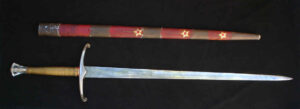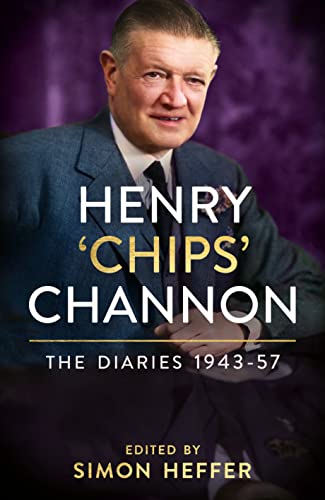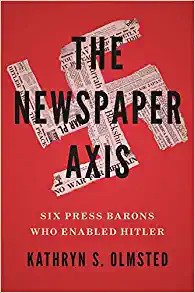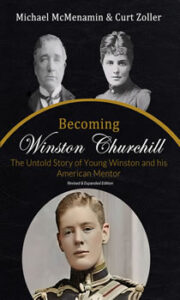
Finest Hour 201
Books, Arts, & Curiosities – Recessional

September 25, 2024
Finest Hour 201, First Quarter 2023
Page 48
Review by Philip Williamson
Philip Williamson is Emeritus Professor of History at Durham University and author of Stanley Baldwin: Conservative Leadership and National Values (1999).
Simon Heffer, ed., Henry “Chips” Channon: The Diaries, 1943–57, Hutchinson, 2022, 1,146 pages, £35. ISBN 978–1529151725
This is the longest as well as the third and final volume of Simon Heffer’s edition of Henry Channon’s diaries, but it contains the least amount of material of real historical substance. Channon remained a member of parliament throughout the period it covers, from the closing two years of the Second World War to April 1957, eighteen months before his death at the age of sixty-one. From the mid 1930s to 1941, as a new and keenly interested member of the House of Commons, as friend and occasional host of King Edward VIII and Wallis Simpson, and then as a parliamentary aide to a junior Foreign Office minister, he had maintained an informative, perceptive, and engaging BOOKS, ARTS, AND CURIOSITIES commentary on large public issues, the interactions of politicians, and the travails of the British royal family. The years from 1943 to 1957 were hardly lacking in great public and political incidents, but Channon’s observations on these matters become more sporadic, as his other interests—social life, love affairs, and sex—came to occupy most of his time.
The first illustration in this volume is of Channon’s poster for the general election of 1945. This provides a telling comment on the circumstances of the election, as he describes himself not as a candidate of the Conservative party, but as a “loyal supporter of Churchill”: such was the enormous prestige of the prime minister after the allied victory over Nazi Germany. But Channon’s self-description was an electoral convenience. His private opinions of Churchill remained as ambivalent, and often as critical, as they had been during the 1930s. He could admire some of the Prime Minister’s speeches, with their “colossal and fine command of English” and “immortal prose.” He could on occasion be charmed by Churchill, whose great enjoyment in leading the Conservative opposition to the tottering Labour government in 1950 made him an “incurably, irresistibly, boyish” presence in the Commons. But at other times Channon wrote that he had “never liked or admired” Churchill. Still an idolatrous Chamberlainite, Channon could not forgive Churchill or Anthony Eden (a “man of tinsel”) for opposing appeasement: they would be “severely arraigned before the Bar of History for their short sightedness during the years 1934 1939 when they resolutely refused to come to terms with Germany, and deliberately picked a fortuitous quarrel with Mussolini.”

2025 International Churchill Conference
After the collapse of appeasement, on the day that Britain entered the Second World War in 1939, Channon had written that “our world…is committing suicide, whilst Stalin laughs and the Kremlin triumphs”; now, as the Cold War developed, he blamed the anti-appeasers for creating conditions which allowed Russia “to dominate the world,” and accused Churchill of having been “hoodwinked” by the Russians during the war. Randolph Churchill remained one of Channon’s enemies (“mad and an ogre and a menace”), but, in contrast, Mary Churchill was “adorable.” Channon tries to do her and her husband, Christopher Soames, a favour by easing him into a Conservative candidature for a constituency neighbouring his own. Typically, though, part of his motivation was to encourage Winston Churchill to consider him for elevation to a peerage, which was now his chief, and wholly unwarranted, political ambition. Soames had the good sense to prefer a safer seat, and avoid any obligation towards Channon.
Although Winston Churchill appears only occasionally in the diary, Channon’s comments offer useful evidence of a persistent undercurrent of Conservative criticism towards him. There are further interesting glimpses of politics and public figures. These include the parliamentary efforts to defeat the Labour government in 1950–51, the disintegration of Eden’s premiership in 1956–57, and observations on the younger political generation: Edward Heath as “the Chief Whip par excellence,” and Michael Foot as “a real horror of the French Revolutionary type.” But such observations become rare.
What pre-occupied Channon most of all were his love affairs, with the writer and gardener Peter Coats and, simultaneously for a period, with the playwright, Terence Rattigan, who introduced Channon to a theatrical world that increased his opportunities for casual male sexual encounters, of which he now had many. Channon was at least honest with himself: “I have no morals, no ideals, no principles whatever.” There are those who praise him as a great diarist, but at the heart of these three volumes there is ultimately only emptiness.
Subscribe
WANT MORE?
Get the Churchill Bulletin delivered to your inbox once a month.
Oops! We could not locate your form.
Privacy




